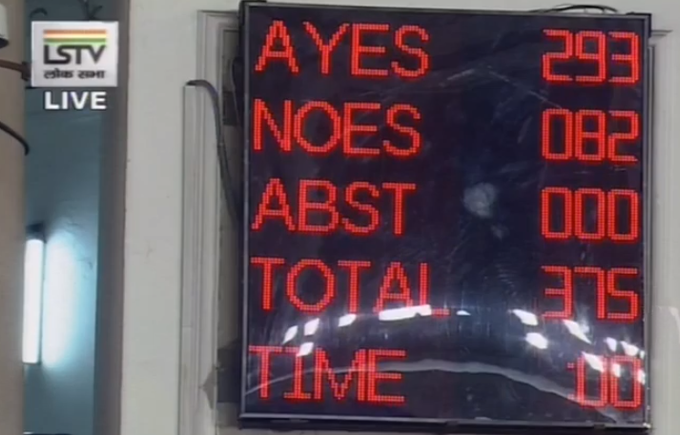Answering all queries, releasing all doubts; With 293 in favour, Parliament discusses CAB in detail
New Delhi, December 9: Asserting loud and clear, Amit Shah stated that the Citizenship Amendment Bill was not regressive and that the bill was not against any religion or minority. With 293 in favour of the tabling of Citizenship Amendment Bill in Lok Sabha, the bill will now be discussed in detail. However, only 82 votes were against introduction of Bill in the house. The Citizenship (Amendment) bill seeks to grant Indian citizenship to non-Muslim refugees from Pakistan, Bangladesh and Afghanistan escaping religious persecution there.

Voicing it in the lower house, Amit Shah rightfully rejected the contention of the opposition that the Citizenship Bill was regressive and stated that the legislation was “not even 0.001% against the minorities of the country”. As Congress tried creating ruckus over the bill, Amit Shah stated that he will answer all the questions and there was no need to walk out. Hitting back, Amit Shah asserted that nowhere in the Citizenship Amendment Bill has he mentioned Muslims. He asked the opposition to not tamper the facts.
The bill has triggered protests in northeastern states with a large section of people, organisations and opposition parties opposing the bill. Indigenous people of the North-eastern states fear that the entry of these people will endanger their identity and livelihood. The AASU and various other organisations have launched a series of agitations against the Bill. They are arguing that it will nullify the provisions of the Assam Accord of 1985, which fixed March 24, 1971, as the cut-off date for deportation of all illegal immigrants irrespective of religion.
The Citizenship Act, 1955 regulates who may acquire Indian citizenship and on what grounds, according to PRS Legislative Research. A person may become an Indian citizen if they are born in India or have Indian parentage or have resided in the country over a period of time, etc. However, illegal migrants are prohibited from acquiring Indian citizenship. An illegal migrant is a foreigner who: (i) enters the country without valid travel documents, like a passport and visa, or (ii) enters with valid documents, but stays beyond the permitted time period.
